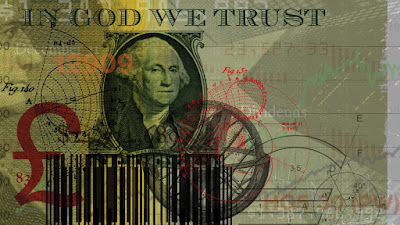They
reckon a quarter of a million people were in London yesterday in protest
against virtually everything the US president stands for and says (and there
were lots of other marches around the country, including Bristol). The protesters
were happy, peaceful, dignified, colourful, noisy… and DETERMINED to
demonstrate to Mr Trump and the world (as if he would take any notice!) that the UK does NOT
love him.
Indeed, we don’t!
Inevitably,
today’s newspapers are all about Trump. I suspect that most will convey a
similar message to our Guardian newspaper, so (perhaps for the benefit of my
American friends?) here are just a couple of brief extracts to give you a
flavour:
“The British government did its absolute best –
given that the streets of the cities were full of protesters – to lay on a
glittering welcome for Mr Trump this week. Blenheim, Sandhurst, Chequers,
Windsor – you don’t get much more in the way of British establishment red
carpet than that. But this reckoned without the Trump character and, more
sinisterly, the Trump political project. The president undermined Mrs May
before he even left America. He bullied and lied at the Nato summit in
Brussels. He then gave an explosive and deliberately destabilising interview to
Rupert Murdoch’s ‘Sun’ on the very day of his arrival in Britain…
This guaranteed that Friday’s press conference at
Chequers would be purgatorial for Mrs May and maybe even a little chastening for the
president and his team. And so it proved, in spite of what had clearly been the
private reading of the diplomatic equivalent of the Riot Act to Mr Trump. But
it was not just the rudeness that mattered – though rudeness does matter, a
lot, both in personal and in public things. It was the political impact and
consequence. That unmistakable consequence is that Mr Trump’s America can no
longer be regarded with certainty as a reliable ally for European nations
committed to the defence of liberal democracy. That is an epochal change for
Britain and for Europe…
A president who supported the Atlantic alliance,
the stability of Europe and liberal democratic values – in short, every other
US president of the postwar era… would have tried to help, would
have seen the EU-UK problem as one that needed solving, and would have used his
influence to get America’s European allies to find a shared way forward after
Brexit. Such a president would have been doing the right thing. But Mr Trump is
not such a president. He is not our ally. He is hostile to our interests and
values. He may even, if this goes on, become a material threat…
This week he deliberately inflamed the politics of
Europe and of Britain” (Guardian
Editorial 14 July).
“This was a far cry from Bill Clinton
strolling through Hyde Park during his presidential swansong or Barack Obama
dropping in on a primary school in Newport. For Trump, making his first visit
to the UK as president, there was no park and no school, no 10 Downing Street,
no Houses of Parliament and no Buckingham Palace. Nor was this the state visit
that May had promised when she dashed to Washington shortly after Trump took
office. The tens of thousands of people marching in the streets of London might
have had something to do with it”
(David Smith, The Guardian).
Rest assured American friends,
there’s never been such UK press comment (and there will have been other
similar comments in other newspapers today, I assure you) about ANY president
in my entire lifetime!
In order
to avoid a transport nightmare on the day itself, I’d travelled up to London
the night before and stayed over in Bromley – thanks to my good friend Becki’s
kind hospitality. It meant that I was able to get into central London quite
early (and seeing the ‘baby trump’ inflatable in Parliament Square as a bonus!).
I relaxed over coffee on the Southbank and the sun was shining… so I decided to
make my way slowly across town to Portland Place (immediately adjacent the
BBC’s Broadcasting House). Initially, I’d planned to take part in the main
march (from Portland Place to Trafalgar Square - which was due to start at 2pm)
but ended up walking with the Women’s March (Portland Place to Parliament
Square – starting at noon) because, when I first arrived just after 11am, there
were already crowds gathering. By an absolute fluke, I also met up with my
great friends Diane and Steve Eyre, and so we were able to march together (what
a very special bonus that was!).
Predictably (I’ve been on a fair few demonstrations in the past, so I know!), I didn’t actually need to have made my own placard – there were literally hundreds provided at street corner pick-ups. But, I’m glad I did… it was MY statement (although I could have added lots of other adjectives describing my opinion of Mr Trump!)… and it provoked lots of positive comment and endorsement.
Of
course, we all knew that Trump was avoiding London like the plague… but it
didn’t matter. Was it
worth making the journey to the UK capital for a few hours “just to take part
in a political demonstration” that was unlikely(!) to bring a change of heart
to this so-called leader of the western world? Yes, absolutely. And, whatsmore,
I felt that I was also there representing dozens of family members and friends
who weren’t able to make the trip (one of the bonuses of retirement)… and,
indeed, in solidarity with my friends from the USA.
Small voices against the extremes of
political power… a token gesture? Well, maybe. But actually, I think it wasn’t
just a message for Mr Trump… it was message to politicians/political parties
throughout the world and, IN PARTICULAR, a message to our own politicians and
parties here in the UK.







